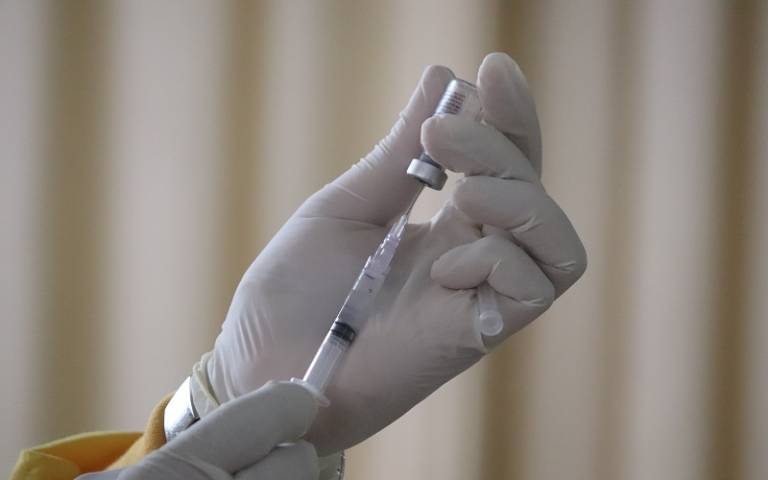Mistrust is among the main factors influencing vaccine uptake in ethnic minority groups
10 December 2021
The main factors that influence vaccine uptake among ethnic minority groups have been identified in a new study involving UCL Institute of Education (IOE).

Uptake of the Covid-19 vaccine remains consistently lower among some ethnic minority groups than among the general population. To understand and address this, IOE joined up with universities, community organisations and small and medium size enterprises as part of the ‘Collaboration for change: Promoting vaccine uptake’ project. The project carries out research to identify the factors that influence uptake of vaccines in ethnic minority groups and find strategies that may increase uptake.
Three key factors were identified in the study: lack of trust in organisations and individuals who advise on or promote vaccine uptake, lack of culturally and linguistically appropriate information, and inconvenient locations and timings of vaccine appointments. To combat this, the researchers suggested: using trusted messengers to provide information, tailoring the message both culturally and linguistically and ensuring relevant issues are covered, and providing flexible venues and times for vaccination.
Project lead, Professor Shaun Treweek (University of Aberdeen), said: “Management of Covid-19 relies on a high level of vaccine uptake. Knowing why uptake is lower amongst some ethnic minority groups will make it easier to develop approaches that provide reassurance and enable more people to accept the offer of a vaccine. This will help both the individual and society as a whole.
“It is important vaccine uptake is as high as it can be here in the UK and elsewhere. Any approach to increasing vaccine uptake in ethnic minority groups needs to consider the factors and strategies we list. Moreover, it is essential that organisations promoting vaccine uptake work with ethnic minority communities and organisations to tailor strategies appropriately.”
The research itself involved a sweep of all relevant international research, in combination with discussions and accounts of lived experiences from ethnic minority communities. Dr Talia Isaacs (IOE) provided expertise on language and communication with ethnic and linguistic minorities.
Dr Isaacs said: “It is illuminating and inspiring to work with members of community organisations to understand their concerns and initiatives with respect to promoting vaccine uptake in ethnic minority groups. Their voices have shaped this project and helped us assess the relevance and strength of the evidence emerging from the rapid review.
“One major finding is that mistrust in the organisations that promote vaccine uptake, which are part of societal systems, can work against vaccination promotion efforts. This mistrust is deep-seeded and unlikely to be changed by a one-time intervention or incentivisation effort, requiring much more sustained engagement. One of the factors that could be addressed in the shorter term to promote vaccine uptake is to ensure that a trusted messenger is involved in relaying credible information and available to listen and address individual concerns, for example, in individuals with multiple underlying health conditions.”
‘Collaboration for change: Promoting vaccine uptake’ was awarded £80,000 from the Economic and Social Research Council (ESRC), as part of UK Research and Innovation’s rapid response to Covid-19.
Links
- IOE joins effort to address vaccine hesitancy in ethnic minority groups
- Collaboration for Change
- View Dr Talia Isaacs’s research profile
- Centre for Applied Linguistics
- Department of Culture, Communication and Media
- COVID-19 research at IOE
Image
Photo by Mufid Majnun on Unsplash
 Close
Close

